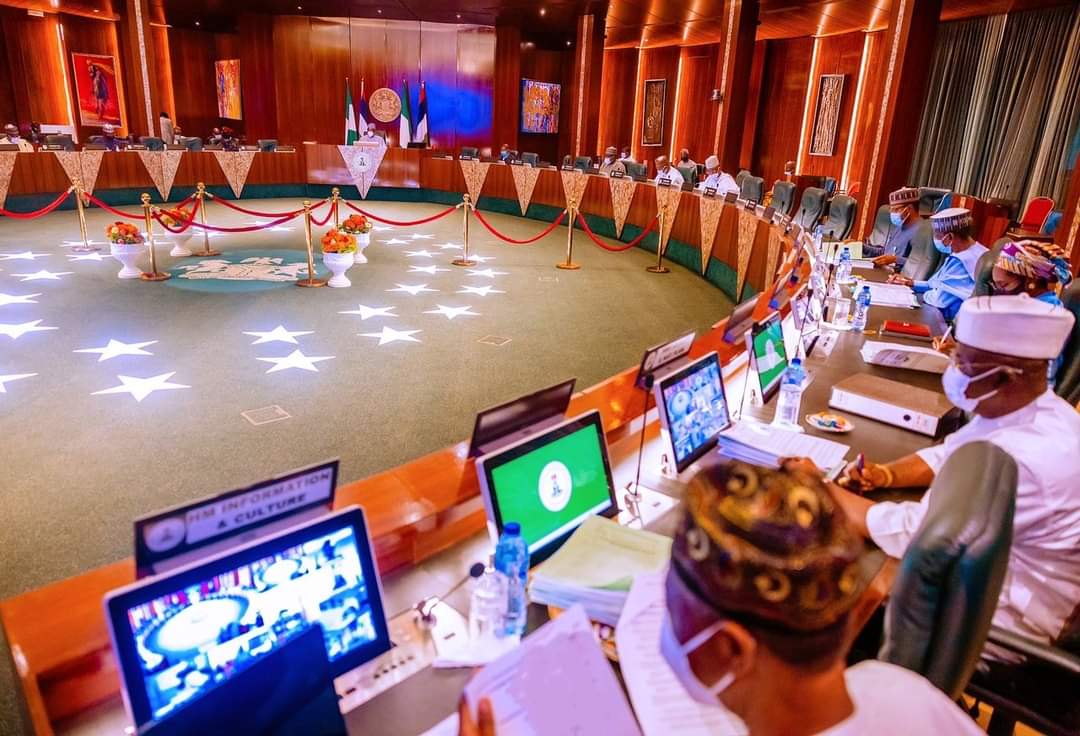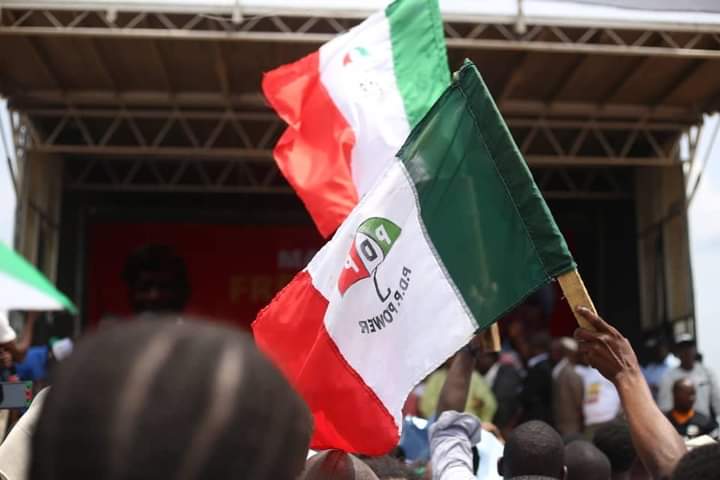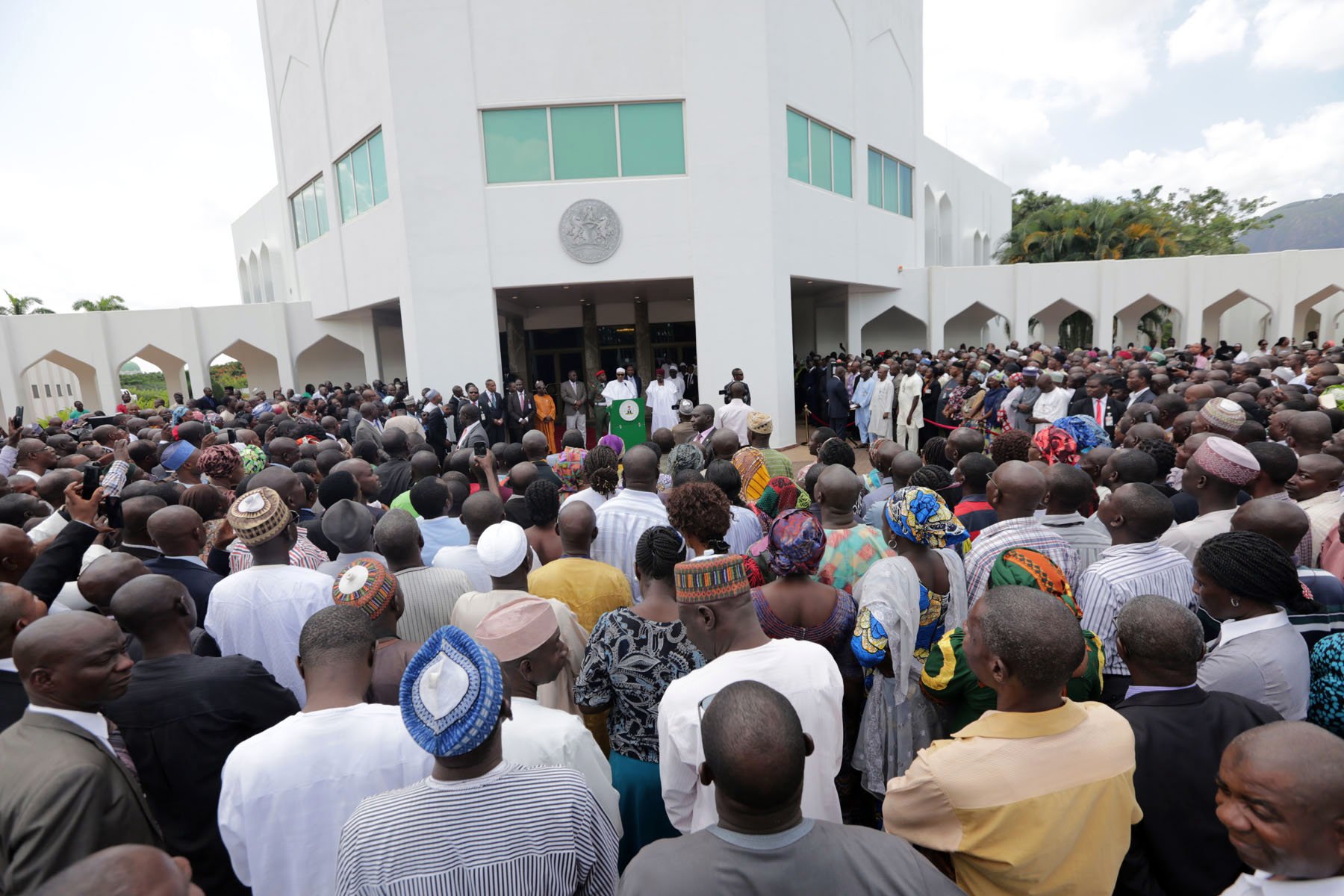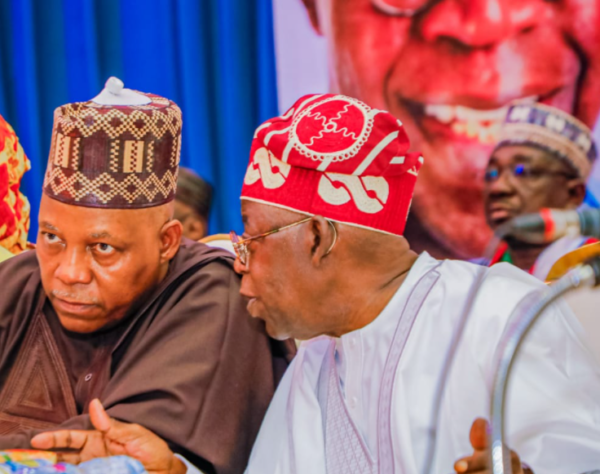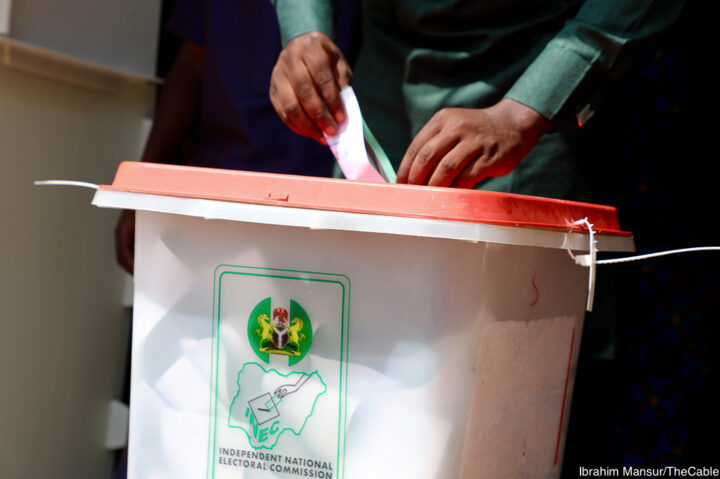By the time the administration of President Muhammadu Buhari winds up on Monday, May 29, 2023, it would have taken our country through every conceivable insanity and ridiculousness. Beyond the time-worn, tripodal possibilities of the good, the bad and the ugly, Nigerians have gone through what the iconic afrobeat musician, Fela Anikulapo Kuti, described as experiences in ‘Craze World’.
Just name it; record-breaking killings in peacetime; freestyle abductions even under the daylight nostrils of security forces, unabated insurgency, unceasing terrorism, festering banditry, the bestial butchery of hapless and innocent folks by psychopathic marauders, mindless arson, deliberate violence and vandalism, headline the manner of deathly motions our despairing people have gone through, these past 87 months.
Earlier this year, SBM Intelligence, a socioeconomic research firm in its ‘Media Reported Killings in Nigeria’ report submission for 2021, put the death toll of Nigerians lost to insecurity within the period at 10,366. Nigeria’s president, Muhammadu Buhari personally received the report. The death toll was attributed to “violent incidents including attacks from Boko Haram, militia herdsmen, abductions, gang clashes and terrorism”. The same report observed that nearly 1,000 security agents were killed within the period under review. This included 322 police officers and 642 soldiers. Tallied together, using the 2021 average, Nigeria might have lost close to 80,000 people to a miscellany of painful deaths and exterminations, under the Buhari regime. This is the manner of unimaginable waste and ruination of highly prized human capital Nigeria has suffered in recent years, numbers which can successfully drive the socio-economies of some countries elsewhere in the world.
For all the boasts and bombasts of the Buhari administration in the provision of services and emplacement of infrastructure, Nigerians continue to groan beneath the multisectoral failings and failures of the administration. Universities have been on strike for six long months thus far, throwing millions of youngsters on the streets, government is serially unable to reach compromises with dissenting academics. Workers in the power sector only recently granted a two-week reprieve to the government, after shutting down the national electricity grid for hours in what they described as “a warning strike”. The transportation system is in the throes of a total shutdown.
Advertisement
Road travel, hitherto the preferred and most popular means of movement, is spiralling out of the reach of ordinary folks. Increasing commuting costs attributable to fly-away fuel prices, and the potential of highway attacks in various ways, have impacted road travel adventurism in several ways. I have not, for instance, been able to brave a trip to my hometown, Isanlu in Kogi state, hitherto an oasis of sanity and serenity, viciously violated two years ago, by daredevil robbers. Attacks on segments of the national rail system which is still being developed have compelled the discontinuation of services in parts. Airlines are shutting down because of heightening operational costs. The few airlines keeping afloat, have stuck virtual daggers in the throats of air travellers, one-way economy class trips now hovering around the $200 mark.
Inflation figures pole-vaulted to 19.64%, basically 20%, in the month of July 2022, the highest it has been since 2005. This was when the Peoples’ Democratic Party (PDP), the much-maligned opposition party by the ruling All Progressives Congress (APC), held sway. Foodstuffs and fuels, such as diesel and kerosene, have become virtual untouchables. Nigeria’s currency, the naira, is one of the weakest and worst in the African continent. According to a survey report, the naira ranks “number 24 among the poorest currencies on the continent”. It exchanges for about N710 to the dollar in the parallel market, away from N199 to the USD in May 2015, when the Buhari government came into office. Critics of the administration have repeatedly enjoined Buhari to revert Nigeria to its situation and standing as of 2015.
Amidst this very grim and disheartening scenario, Nigerians have, in staccato sequence, been subjected to the wry humour of zoological dimensions to the nation’s travails. The monumental heist, the scandalous looting, and the quantum stealing which has been perpetuated at various levels in ministries, departments and agencies under this government have been casually explained away as atrocities perpetrated by animals of various kinds! Primates, reptiles, insects and the like have been listed and accused as complicit and culpable in the novel rape of our commonwealth by today’s trustees of our nation’s resources and economy.
Advertisement
Hitherto, mindless and spontaneous incineration of sections, departments or whole organisations where mammoth thievery was committed was the vogue. It was a popular expectation in the past that every other organisation which came under the spotlight of public scrutiny crashed in an incendiary heap overnight. Every trace of malfeasance, therefore, is safely buried beneath the ash dust and rubble of such edifices, sparing no room for forensic inquisition. These days, however, rapists of our communal resources have upped the ante of their atrocities. It will become expedient henceforth, for codes of conduct and ancillary regulations of public service, to accommodate minimum competence in zoology, as a prerequisite for intending public servants.
No financial losses were disclosed when animals first became major stakeholders in the corporate governance and administration of the Buhari regime back in 2017. Presidential spokesman, Garba Shehu, simply told Nigerians that vicious rodents encroached into the office of the president while he was away for nearly four months on his trademark medicals in the United Kingdom that year. According to Shehu, the rodents turned Buhari’s office upside down while he was away, puncturing office furniture and eating up the pipe network of the airconditioners serving the office. While rehabilitation efforts proceeded, Buhari squatted in a corner of the “Office of the First Lady”. This is just how very important rodents and similar animals must be taken in governmental affairs.
In early 2018, a reptile reportedly swallowed a whopping sum of N36 million from the strong room of the Joint Admissions and Matriculation Board (JAMB). As I write this, there is a news report to the effect that the Independent Corrupt Practices Commission (ICPC) is investigating massive fraud to the tune of N11 billion perpetrated by the same JAMB. Hopefully, this was not swallowed by a whale or an elephant, which rank in the bracket of the largest creatures. I’m restrained from further comments for now because Ishaq Oloyede, the professor and chief executive of JAMB, has had an impressive public service profile thus far. Let’s see how this pans out.
Since the N36 million JAMB snake incident, however, phantom animals have grown more and more emboldened and brazen, ever snacking so indiscriminately at public resources. A week later, the sum of N70 million belonging to the Northern Senators Forum (NSF), and kept in the custody of the present national chairman of the APC, Abdullahi Adamu, was reportedly ingested by “monkeys”. Adamu, then a serving senator and chair of the NSF, lost his position as leader of the body to mismanagement of the funds. Earlier this year, however, he was gleefully rewarded with the apex position in the party’s hierarchy. This self-same Adamu had, in the past, held very enviable senior executive positions not the least as two-term governor of Nasarawa state, and works minister at some point under the erstwhile military government.
Advertisement
A quizzical question has been making the rounds on social media lately. It has images of three creatures, namely: a rat, a monkey and a termite. And the question is: Which is the strongest of these animals? The last in this list, the termite that is, has joined major stakeholders in our current governance system, owing to very recent development. A few days ago, documents containing multibillion naira transactions by the Nigeria Social Insurance Trust Fund (NSITF) were declared missing. Officials of the agency reportedly told a committee of the senate, that all the files and records bearing the breakdowns of expenditure worth N17. 1 billion had been eaten up by termites.
This vermin infestation, according to the government officials summoned to illuminate this unthinkable discovery, was compounded by the rage of the elements, namely the rain in this instance. It completely destroyed the metal container which housed the files and papers, obliterating every record and document. Curiously, the termites in the three-way quiz earlier alluded to, bested its competitors; the snake and the monkey! This is how ridiculous our country has sunken in the eyes of the world. We are a tragic laughing stock, a caricature for popular, global amusement, even as we continually humour ourselves as “the giants of Africa”.
We have in place a government which rode on the horseback of popular sentiments and support. It pledged to do things differently from the preceding government, including the reversal of every misdeed and affliction, hitherto foisted on the country. The high point of its manifesto was its advertised determination to fight corruption and instil accountability in governance. Its mouthed commitment to rout crime and criminality, insurgency and terrorism, will be the subject of another exegesis. Barely nine months to the conclusion of this administration, however, this is the bind, the cul-de-sac it has brought us all.
Glaring opacity in the conduct of government business is as befuddling as even the medical status of the president himself. He oscillates between some variant of withdrawal within the precincts of the state house, and rare public appearances, like the masquerade, just the way he showed up in Maiduguri the other day. And before we know it, our president is in the UK for yet another medical review or delivering a lecture in Liberia on how to ensure in-country security and regional stability. Yet, back home, our people and troops are forever at the mercy of mean-spirited insurgents, Fulani militias, terrorists, kidnappers, and gunmen; each geopolitical zone contending with its own peculiar security issues.
Advertisement
Buhari cannot feign ignorance of the crass kleptocracy which has defined his administrations in various ways. The dubious “school feeding programme,” for which several billion of naira was voted, yielded kwashiokored children and robust contractors. What became of the whimsical Tradermoni scheme for which billions of naira were voted under some ill-thought empowerment scheme, which was just a violation of our national treasury? How about the multibillion naira COVID-19 palliative programme which only delivered severe dis-empowerment for our people?
Didn’t I just read about a scheme into which N5.9 billion was committed to training 177 youths in smartphone repairs? The programme was reportedly powered by the ministry of disaster management and humanitarian affairs, headed by Sadiya Umar Farouq. Didn’t we receive the news recently that the federal ministry of agriculture expended the sum of N18. 9 billion on “bush clearing and land preparation?” The former accountant-general of the federation, Ahmed Idris, was recently docked for fraud in the sum of N109 billion. The fiscal budget of Ekiti state for year 2022, is just N100 billion.
Advertisement
Mammoth scams and scandals such as we have detailed above, flourish in high places with very little reprimand for defaulters. At the very best, sanctions are all but a slap on the wrist, in what the inimitable Fela described as “paddy paddy” governance in his hit song, ‘Army Arrangement’. And since no one is appropriately and decisively punished, the trend simply blooms and blossoms, prevalent across the broad spectrum in the executive, legislative and judicial arms of government. Entrenched, systemic corruption was the major highlight of the “charge sheet” against the immediate past chief justice of the federation (CJN) who bowed out voluntarily and has not been questioned ever since.
Other people therefore simply adopt this archetype of slime and sleaze, lock, stock and barrel, confident they can most probably go unnoticed and unpunished. At the very best, they subscribe to a plea bargain which still entitles them to substantial onshore and offshore aggregates from their monumental hauls. More ingenious rogues enlist their contacts in the judiciary, where they obtain “perpetual injunctions forbidding their arrest and arraignment,” even for visibly established crimes and complicity, deserving of heavy forfeitures and long-term incarceration. This is the way the system progressively decays and degenerates.
Advertisement
Contemporary governance, probity and accountability in Nigeria have become so very susceptible to the whims and wiles of all types of insects, reptiles and different mammals. Shouldn’t we formally integrate them into the scheme of modern-day corporate administration in recognition of their serial exploits as thieves, robbers and marauders in our body politic? Let’s invest them with national identification numbers, (NIN), our digitised international passports, plus permanent voters cards (PVCs) to further legitimise their citizenship. To do otherwise will be a disservice to these critical stakeholders.
On this score, let’s, once again, show the whole wide world the way. Despite our globally acknowledged multivariate ingenuity, genius, capacities and positives, we, sadly, so often, also excel in the weird and bizarre.
Advertisement
Olusunle (PhD), poet, journalist, author and scholar, is a member of the Nigerian Guild of Editors (NGE)
Views expressed by contributors are strictly personal and not of TheCable.
Add a comment

